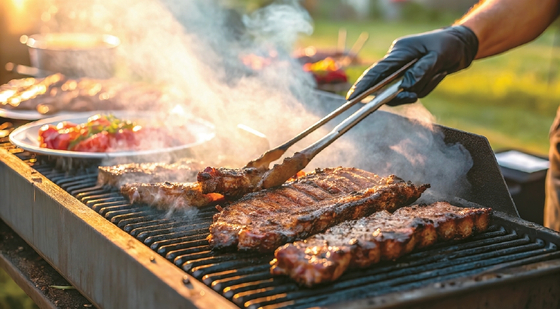As Californians prepare for fireworks and family gatherings this Fourth of July, they’ll also be paying significantly more at the grocery store than the rest of the country.
According to the American Farm Bureau Federation (AFBF), a cookout for 10 people in California will cost $90.06 on average—27% higher than the national average of $70.92, and 23% more than the Western regional average of $73.50, as reported by the Los Angeles Times.
The price jump is especially visible in key ingredients. Two pounds of ground beef cost $14.33 in California, about $1 (7%) more than the national average. Chicken breast costs $12.48, about 60% higher than the national average of $7.79. Three pounds of pork ribs are priced at $19.30, over $5 more than elsewhere.
Other barbecue staples like cheese, potato salad, strawberries, ice cream, cookies, and lemonade also cost 20% to 40% more than the national averages.
The price gap stems from several overlapping factors. According to the report, tariffs, reduced meat supply, and labor shortages are all driving up costs.
Samantha Ayoub, an economist at the AFBF, said, “Inflation and supply constraints in certain food categories continue to elevate grocery bills.”
Earlier this year, the Trump administration imposed a 25% tariff on most imports from Mexico and Canada, raising the cost of fresh produce sold in grocery stores. Additional tariffs on steel and aluminum have also raised packaging costs for canned goods.
Meanwhile, meat supplies have tightened. Beef production has declined, and chicken supply has yet to recover from the recent avian flu outbreak.
Labor shortages are compounding the issue. Large-scale immigration enforcement operations by Immigration and Customs Enforcement (ICE) have disrupted farms across the state. In major agricultural regions like Oxnard, surprise inspections during harvest season have made it difficult for farms to maintain staff levels.
Matthew Viohl, a policy director at the California Farm Bureau, warned that “market uncertainty remains a major concern for growers, and urgent policy changes—especially in trade—are needed.”
BY WONHEE CHO [cho.wonhee@koreadaily.com]




